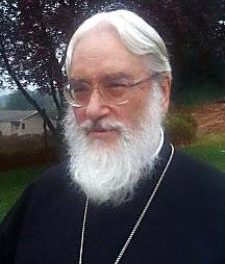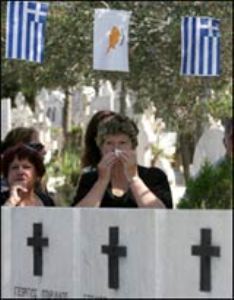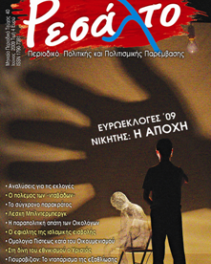Πριν λίγο στο State Department, η αμερικανίδα υπουργός των Εξωτερικών Hillary Clinton George και ο ειδικός απεσταλμένος του Λευκού Οίκου για την αραβο-ισραηλινή διένεξη έκαναν κοινές δηλώσεις, μετά την επιστροφή του τελευταίου από την περιοδεία του στην περιοχή. Η κα Clinton επεσήμανε την βούληση της Αμερικανικής πλευράς να κάνει διάλογο και με τις δύο πλευρές, προκειμένου να σημειωθεί πρόοδος προς την επίτευξη συμφωνίας που θα λήξει την διαμάχη μεταξύ των δύο πλευρών, θα οδηγήσει στην δημιουργία του παλαιστινιακού κράτους και θα εξασφαλίσεις τις συνθήκες ασφάλειας για το Ισραήλ. Όπως ανέφερε η επικεφαλής της αμερικανικής διπλωματίας, οι Ηνωμένες Πολιτείες αναμένουν τα αποτελέσματα των ισραηλινών εκλογών προκειμένου να ξεκινήσουν οι συζητήσεις με την νέα ηγεσία. Από την πλευρά του ο George Mitchell, επεσήμανε την συμβολή που αναμένεται εκ μέρους των ηγετών της περιοχής να έχει η αμερικανική διπλωματία στην επίτευξη της ειρήνης και της σταθερότητας, ενώ υπογράμμισε την επιθυμία τους για επίσκεψη της κας Κλίντον στην περιοχή, αλλά και την μεγάλη σημασία που είχε τόσο η προηγούμενη επικοινωνία της με τους ηγέτες των χωρών, όσο και η συνέντευξη που έδωσε ο αμερικανός πρόεδρος Obama στο τηλεοπτικό δίκτυο El-Arabiya.
Remarks by Secretary Clinton and Special Envoy Mitchell After Their Meeting
February 03, 2009
Hillary Rodham Clinton Secretary of State
George Mitchell, Special Envoy for Middle East Peace
Treaty Room
Washington, DC
SECRETARY CLINTON: Good morning. I welcomed our Special Envoy George Mitchell back from his trip to the Middle East and Europe this morning, and we were able to have a long discussion about what he heard and learned in the region. This kind of diplomatic force projection that Special Envoy Mitchell represents is something that both the President and I believe very strongly in, and I was pleased that the President agreed to appoint Senator Mitchell. And of course, he quickly sprang into action.
He has described to me the steps that he discussed with the various parties to obtain a sustainable and durable ceasefire. We especially commend Egypt for its leadership role in working through the complex issues concerning a ceasefire. Senator Mitchell also discussed how we can better mobilize humanitarian relief to the people of Gaza and to coordinate the efforts underway or anticipated in the international community.
This is the first of what will be an ongoing, high level of engagement by Senator Mitchell on behalf of myself and the President. We are looking to work with all of the parties to try to help them make progress toward a negotiated agreement that would end the conflict between Israel and the Palestinians, create an independent and viable Palestinian state in both the West Bank and Gaza, and provide Israel with the peace and security that it has sought.
We are looking forward to the results of the Israeli elections so that we can begin working with a new Israeli government. We are working with the Palestinian Authority under President Abbas and Prime Minister Fayyad to support their efforts to continue the progress that they have made in providing security and meeting the needs of the Palestinian people.
Senator Mitchell will be returning to the region before the end of the month. We are very grateful to all of the leaders and the various countries who quickly arranged their schedules to be able to meet with him.
And I want to thank him again for answering yet another call to duty. I'm grateful that he is also making clear to all of the interested parties and sides in the region who are concerned about the fate of the children on both the Israeli and the Palestinian sides of this conflict, that the United States is engaged, that we are determined and committed to working with all who will work in good faith to solve the problems that are obviously afflicting that region.
So let me now ask Senator Mitchell to report on his trip and to, you know, provide you with some insight into what he learned during the last week.
SENATOR MITCHELL: Well, thank you, Madame Secretary. When the Secretary first called me to tell me that she would like to recommend my appointment to the President, she warned me that it would involve some travel – (laughter) – but she didn't tell me that it would be so much so soon, that I would have to cover so much ground in my first week on the job. But I warned her this morning that she's going to have to start pretty soon because all of the leaders with whom I met had, in fact, already spoken to the Secretary and are anxious for her to come to the region, which, at an appropriate time and consistent with the worldwide demands on her schedule, I hope that she'll be able to make. So I thank her for the contribution.
Her discussions with most of the leaders helped to pave the way, along with the President's appearance on television, in the region. And as a result, I was received very warmly by those with whom I met, all of whom expressed satisfaction and gratitude that the United States in this Administration is undertaking promptly an initiative to try to help as best we can to achieve the goals that the Secretary set forth in her statement.
As I said here when my appointment was announced just a little over a week ago, the situation is obviously complex and difficult, and there are no easy or risk-free courses of action. But I'm convinced, after a week there, that my original assessment that with patient, determined, and persevering diplomacy, we can help to make a difference and that we can assist those in the region achieve the peace and stability that people on all sides long for.
It's extremely difficult for all concerned there now, and they recognize widely that American diplomacy can, and I believe will, be helpful in resolving the differences and moving forward toward the peace and stability that everyone wants.
So, Madame Secretary, thank you again for suggesting my appointment to the President and being so fully supportive of the mission that I've undertaken. As you have indicated and directed, I will be returning in just a couple of weeks, and I plan to make a regular and sustained – establish a regular and sustained presence in the region.
Thank you very much.
QUESTION: Madame Secretary —
SECRETARY CLINTON: Thank you.
QUESTION: — (inaudible) it's clear that from the President's first interview and from the first stop in Cairo that the Administration is making a concerted effort to send a signal of the priorities and the balance, and perhaps a rebalancing. Is that enough going in? Or, eventually, does there have to be a path, a diplomatic path to Hamas, in order to resolve Gaza? And if I could ask both of you, Madame Secretary.
SECRETARY CLINTON: Well, Andrea, you know, we have a very clear policy toward Hamas, and Hamas knows the conditions that have been set forth. They must renounce violence. They must recognize Israel. And they must agree to abide by prior agreements that were entered into by the Palestinian Authority.
We are just at the beginning of this deep and consistent engagement that we are part of, that Senator Mitchell is leading for our Administration, but our conditions with respect to Hamas have not and will not change. It is our hope that the work that needs to be done to move the parties toward an effort to settle many of the disputes that they currently confront will be effective. But Hamas knows that it must stop the rocket fire into Israel. There were rockets yesterday, there were rockets this morning. And it is very difficult to ask any nation to do anything other than defend itself in the wake of that kind of consistent attack. So that's not new news. You know what our position is. It is something that the President has set forth.
We are not able to, you know, look into the future to see whether there will be changes on the part of Hamas that would meet our conditions. But you know, certainly, that would be a clear path for them to follow. We are going to report to the President in the next day. And, you know, we'll have more to say as this process moves forward. But again, I want to thank Senator Mitchell for undertaking one of the most difficult assignments that anyone could be willing to shoulder.
And we want to send a clear message, as he did, both listening and responding during the last week, that the United States is committed to this path, and we are going to work as hard as we can over what period of time is required to try to help the parties make progress together. So thank you all very much.


















